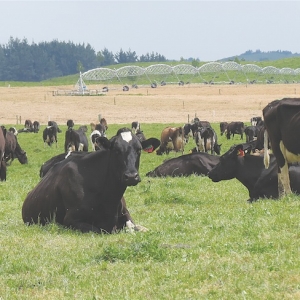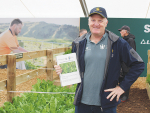Pasture-based dairy farming is a balance between managing the pasture and the cows to maximise sustainable profit, says DairyNZ.
Grazing management must optimise future pasture production and quality, with MS production and reproductive performance.
According to DairyNZ, the tools of grazing management are frequency and intensity of grazing. Pasture production and quality are mainly affected by cover (amount of pasture) and grazing intensity. Pasture intake is mainly affected by the amount and quality of the available pasture offered each day.
Pasture and herd performance are optimised by having sufficient quality feed on an annual basis to meet cow demand and by allocating this feed applying the following principles and management practices:
Control the area grazed each day (or rotation length) to manipulate pasture eaten to meet average pasture cover targets for the farm
Estimate the area and pre-grazing cover required for the cows based on the target grazing residual and adjust after observing when and if the cows achieve a ‘consistent, even, grazing height’
Make management decisions to maximise per cow production for the season not at any one grazing, the ‘main course principle - no dessert’
Treat pasture as a crop - remove pasture grown since last grazing and prevent post-grazing height increasing over the season
Have pasture cover distributed between paddocks in a feed wedge to ensure that high quality pasture is offered on all paddocks
Keep average pasture cover above 1800kg DM/ha1/ in early spring and between 2000-2400kg DM/ha1/ for the season to maximise pasture growth rates
Over the season the height of post-grazing residuals (cover) does not change but the dry matter mass does increase. This is the value of using ‘clicks’ on the Rising Plate Meter (RPM) or one formula for the RPM for the season
The number of times fresh pasture is offered within a day does not affect dry matter intake or milk production.
Grazing frequency does not affect grazing time, rumination time or resting time of cows.
There is no research evidence that grazing frequency (12 vs 24 hr) affects pasture growth, as growth is influenced by a range of factors. It is much more important to maintain appropriate residuals of 1500-1600 kgDM/ha.
Decisions about grazing frequency are often a result of farmer preference due to specific farm characteristics, i.e. even/uneven paddock sizes, shape of the farm, soil types and labour availability.


















